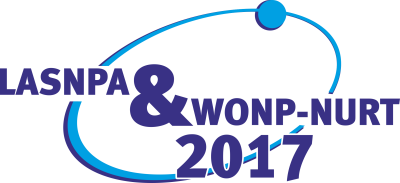Speaker
Description
14F7 is a murine monoclonal antibody that recognizes the ganglioside N-Glycolil GM3 and induces death in tumor cells that overexpress this ligand. Antibody fragments exhibit improved pharmacokinetic properties as compared to whole antibodies. The study was based on two assumptions: first, the h14F7-F(ab')$_2$ does not lose its biological activity; second, labelled with $^{99m}$Tc, have a more favorable pharmacokinetic behavior for its use in radiodiagnosis. After pepsin digestion, 10 mg/mL of fragment was obtained with 40 % of recovery. Schwarz method was used for radiolabeling both h14F7 mAb and its F(ab')$_2$ fragment. The quality control was performed by means of paper chromatography, where yields of 99.04 ± 0.27 and 97.21 ± 0.21 %, respectively, were obtained. In vitro studies verified the high stability of $^{99m}$Tc-F(ab')$_2$ and $^{99m}$Tc-h14F7. Biodistribution of radioimmunoconjugates was evaluated in healthy BALB/c mice and in a tumor model with the administration of equimolar amounts, reflecting lower uptake in non-target organs for $^{99m}$Tc-F(ab')$_2$ and scintigraphic images presented a target to non-target ratio due to a faster clearance as demonstrated in pharmacokinetic analysis. $^{99m}$Tc-F(ab')$_2$ have good possibilities of being used in radioimmunodiagnosis, with diminished risk of toxic and radiotoxic effects due to the permanence or accumulation of the radiolabeled ligand.

